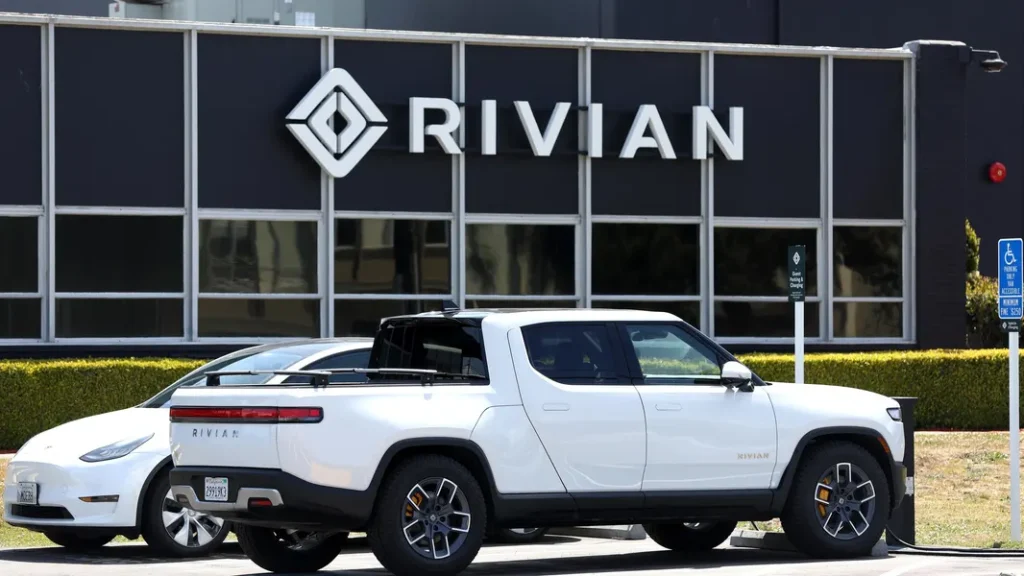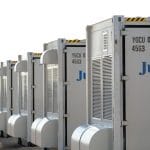Rivian to Build $1 Billion Georgia Plant for Next-Gen EVs

- $1 billion facility in Georgia to produce Rivian’s next-generation R2 and R3 electric vehicles from 2028.
- Project expected to create 7,500 direct jobs and nearly 8,000 indirect jobs, generating more than $1 billion in annual labor income by 2030.
- State partnership integrates workforce training, local business development, and community engagement to strengthen the clean energy economy.
Rivian Breaks Ground on Georgia Expansion
Rivian has launched a $1 billion electric vehicle (EV) manufacturing project in Georgia, deepening the United States’ commitment to clean transport and green industry growth. The 809-hectare facility, slated to begin construction in 2026, will be the company’s second major plant and will anchor production of its next-generation R2 sport utility vehicle and R3 crossover.
The plant, located across Jasper, Morgan, Newton and Walton Counties, is expected to begin producing customer vehicles in 2028. By 2030, Rivian projects the site will employ 7,500 people directly, with economic modeling by IMPLAN estimating nearly 8,000 additional jobs created indirectly through suppliers and service providers. Annual labor income tied to the facility could surpass $1 billion, a scale of economic impact rarely seen in the region.
“This facility cements Rivian’s future in Georgia and positions America to maintain global leadership in advanced manufacturing,” said RJ Scaringe, founder and chief executive of Rivian. “The plant provides the scale we need to put millions of drivers in our all-electric vehicles both in the US and abroad.”

Green Manufacturing Meets Regional Development
Rivian’s investment dovetails with Georgia’s broader push to position itself as a hub for clean industry. Governor Brian Kemp, speaking at the plant’s launch ceremony, described the development as “another milestone in bringing quality, good-paying jobs to Georgians in this part of the state.”
The plant will occupy a nearly 2,000-acre site designed to integrate with its surroundings. Plans include employee and visitor recreation trails and a dedicated “Rivian experience trail.” The company has emphasized that the site’s layout will balance industrial capacity with environmental stewardship.
Local officials say the project is the culmination of long-term planning. “The Rivian project is exactly the kind of opportunity the Joint Development Authority envisioned 25 years ago: high-tech, good-paying jobs in the communities we call home,” said Jerry Silvio, chairman of the Joint Development Authority of Jasper, Morgan, Newton and Walton Counties.
Training a Clean Energy Workforce
To meet the demands of large-scale EV production, Rivian is building education and workforce partnerships with Georgia’s universities, technical colleges, and state institutions. These programs aim to equip workers with skills needed across manufacturing, engineering, and advanced battery technology.
Community integration is also a central part of Rivian’s strategy. Ahead of construction, the company held a community day event that drew nearly 1,000 residents, signaling its effort to embed itself in the region’s economic and social fabric.
The company expects the Georgia facility to become not only a production center but also a platform for innovation in vehicle design and supply chain sustainability. As Rivian scales, the plant will support global expansion while feeding into domestic policy goals to strengthen US clean manufacturing capacity.
RELATED ARTICLE: Rivian Hires Anisa Kamadoli Costa as First Chief Sustainability Officer
Strategic Stakes for US and Global EV Markets
For C-suite executives and investors, Rivian’s move illustrates how EV manufacturers are recalibrating strategy amid shifting market conditions. While demand for EVs has softened in parts of the US, automakers and policymakers continue to bet on long-term growth driven by emissions targets, consumer adoption, and federal incentives.
The Rivian plant aligns with federal priorities under the Inflation Reduction Act, which channels tax credits and subsidies into domestic clean energy supply chains. It also contributes to investor confidence that EV production can generate durable economic multipliers in local economies.
By localizing next-generation vehicle production, Rivian is positioning itself against both domestic rivals like Tesla and international competitors such as BYD. Scaling to meet future demand will depend on whether Rivian can bring down production costs while maintaining its premium brand positioning.
Global Implications
The Georgia plant adds weight to the US narrative that clean industry expansion can generate high-value employment while reducing dependence on imported technology. For policymakers, it offers a case study in pairing state-level incentives with federal climate policy. For investors, it represents a large-scale bet on the durability of the EV transition, despite cyclical market headwinds.
As construction begins, the stakes extend well beyond Georgia. The plant’s trajectory will test whether the US can sustain its role as a leader in low-carbon manufacturing at a time when global EV supply chains are tightening and competition is intensifying.
Follow ESG News on LinkedIn









